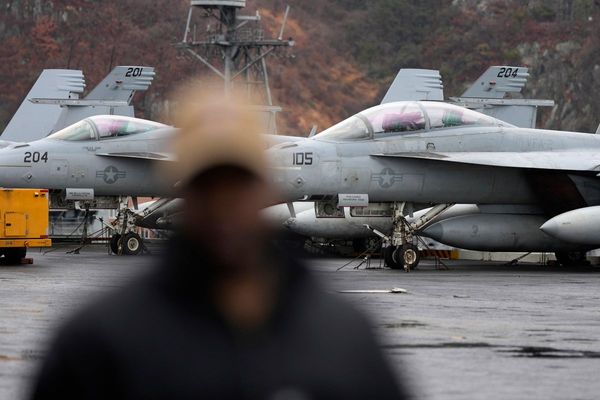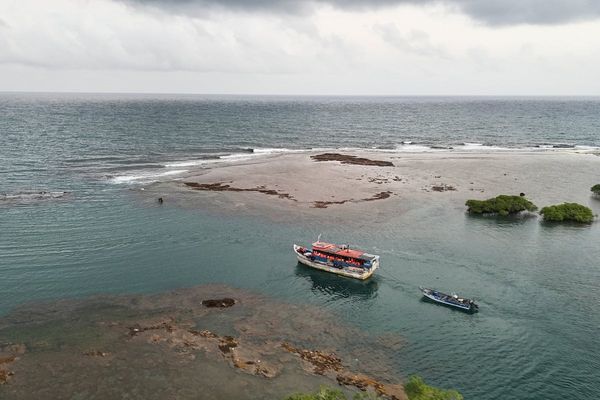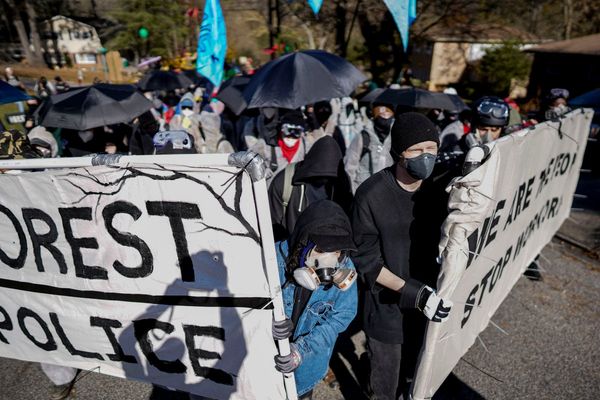
The cliché about disunity being death in politics sure doesn’t apply to the No campaign. It’s all over the place, and it’s winning.
As the referendum draws nearer and the “debate” grows more fetid, we’re getting a better sense of the spectrum of No arguments. We’ve known the ends of the spectrum for a long while — progressive Nos, who regard a Voice as inadequate, or want a treaty first, or who regard a Voice as simply the legitimisation of the fundamentally monstrous act of colonisation and genocide. And at the other end, the out-and-out racists who basically hate First Peoples, or who are so profoundly indifferent to their experience as to be immorally neglectful beneficiaries of colonisation.
There’s also been, all along, a group for whom the Voice referendum is simply another front in endless culture wars, another opportunity to attack progressives, First Peoples, people of colour, women, LGBTQIA+ people, the “woke”, inner-city people, etc. They’re the ones to be found attacking Welcome to Country ceremonies and Acknowledgements of Indigenous peoples and pretending that Australia Day was always on January 26 and moving it is an act of terrorism. They’re related, but not identical, to foreign influencers and trolls trying to sabotage the Yes campaign (Russians, News Corp, the Daily Mail) by inciting division.
There’s now emerging a neo-assimilationist view, which non-Indigenous figures have been given cover to express by Jacinta Nampijinpa Price, who has dismissed the possibility of intergenerational trauma, described colonisation as positive, and argued there’s no need for separate Indigenous policies.
There’s a minority in the non-progressive No camp who at least appear thoughtfully engaged with Indigenous issues. Nyunggai Warren Mundine, for example, opposes the Voice but supports local-level treaties, and even backs moving the date of Invasion Day from January 26.
There are also senior figures such as former Liberal PM Tony Abbott and Opposition Leader Peter Dutton who claim to support Indigenous recognition in the constitution, but only a white man’s recognition, one devoid of any engagement with the people being recognised, sort of “we’ll recognise who our First Peoples are, and the circumstances in which they’re recognised”.
The latter claim that simple Indigenous recognition, without a Voice, would sail through a referendum with strong support — but you can bet your house the same No campaign would re-form against such a referendum on the basis that it was racially divisive, unfair on white people, created legal doubt, would be a lawyer’s picnic, etc — is essentially the same as the reasons being offered against the Voice.
Then there’s the minority-of-one argument of Dutton, that we need a second referendum — a position not even his own Indigenous affairs spokeswoman Price will support.
But if Dutton is at odds with Price on a second referendum, he is also explicitly at odds with Mundine on the need for treaties, not to mention Australia Day. Mundine says he’s at odds with open racists within the No campaign, and has dumped or sidelined them. Many No campaigners openly object to any recognition at all, even the white man’s recognition on offer from the Liberals.
But as part of the hardening of positions that inevitably occurs during a campaign, other No arguments are getting more profile. While broadly successful in pushing a message of confusion and fear, the No campaign has had limited success in selling the line that a Voice would automatically lead to reparations being paid to First Peoples. A senior member of Mundine’s group is also peddling a line from the native title debates of the 1990s. In a good get by the Nine newspapers, former One Nation candidate Kerry White was reported as claiming: “Aboriginal people will be running this country, and all the white people here will be paying to live here.”
It could be 1996 and the Wik decision all over again, complete with John Howard and Tim Fischer holding up maps on The 7.30 Report warning people’s backyards were about to be seized by Black activists. Remember, this isn’t a fringe figure but a board member of Mundine’s No group.
It’s the latest of a variety of lies peddled by the No campaign, and as if on cue, Australia’s most prominent political liar, Scott Morrison, offered his intervention in the debate by telling his Cook constituents — unemployable outside politics and with his party terrified of losing his seat, Morrison remains trapped in Parliament — that:
The Voice is ill-defined and carries significant risk … Ultimately the High Court is then left to sort out the mess and decide what it all means, long after you have cast your vote. This will inevitably lead to needless confusion and uncertainty — over everything from our national defence to Centrelink, which all fall within the ambit of the Voice.
That this is yet another lie from Morrison is unsurprising: the man has made mendacity the defining feature of his time in politics, so there’s no reason to stop now.
What’s more ironic, and altogether funnier, is that the man who led as chaotic, incompetent and corrupt a government as he did, the man who secretly signed himself into ministries, the man who allowed his cabinet colleagues to be misled, should warn of a “mess” in government — especially at, of all places, Centrelink.
Still, remember the lesson from Morrison’s time in politics — you can be openly at war with each other, you can blatantly lie, you can utter complete nonsense, but you can still win an election. Or in this case, a referendum.







